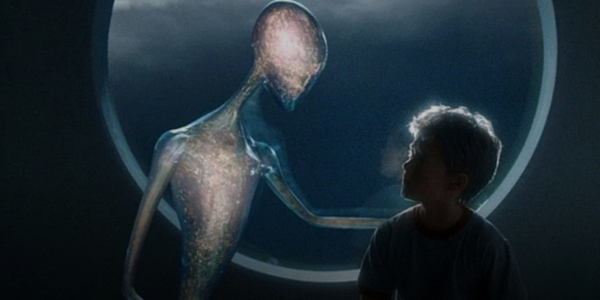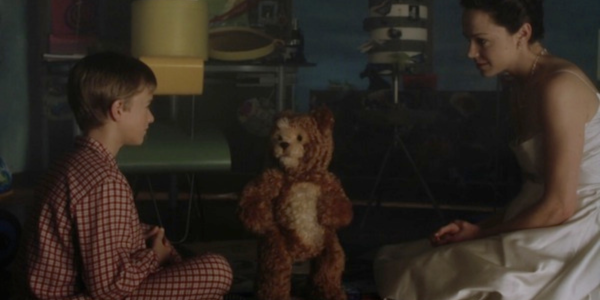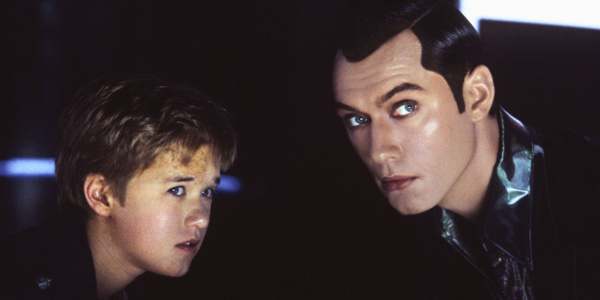An android designed to look and behave like a child embarks on a fairytale like odyssey in search of answers to his existence, and the only mother figure he ever knew.
There’s some sort of correlation between science fiction films and love. Not just in the romantic sense, either. Familial love is a running theme in many of the best science fiction films ever made. Enter A.I. Artificial Intelligence. What seems like a shiny blockbuster on the outside is a surprisingly deep exploration of the undying and often overlooked love of a child for their mother. While we’re used to the heroic parental figures and we’ve seen plenty of tragedies and tear-jerkers take on the viewpoint of how much a parent loves their child, it’s criminally underutilized to see it from the other side. And while the child in question here is in fact a robotic creation, it still takes us on an expansive journey into a fractured and problematic relationship with an imperfect and rather unrequiting mother figure, something that hits shockingly hard for any child who struggled with loving a parent who didn’t come anywhere near those heroic standards that we’re shown as being commonplace.
With the rights to Supertoys Last All Summer Long by Brian Aldiss having originally been acquired by Stanley Kubrick, I can’t help but be thankful that the film ultimately wound up being written and directed by Steven Spielberg. Please don’t even get me started on Kubrick and his maltreatment of his cast and crew… A.I. Artificial Intelligence is just one of those tender and emotional pieces that’s fully suited for Spielberg’s lens, and with the help of Ian Watson on the script and story, the film came to life with Spielberg’s trademark larger than life look, while also never losing touch with the humanity and endearing quality of the story, something that could very easily have been overlooked in favor of flashy, substanceless visuals with no heart. Spielberg instead captures the perfect balance, making it both incredibly striking to look at while also tearing your soul to shreds.
I still assert that there has virtually never been as good of a child actor as Haley Joel Osment. While his latest choices in roles have been unbecoming to say the least, there’s no denying how absolutely endearing Osment was throughout his childhood lived on screen. A.I. Artificial Intelligence is a brilliant showcase of this talent, and his role as David will have you smiling, weeping, and everything in between, as this hapless child finds his way through a world that means him harm and malice, and as he navigate the difficulty of loving a mother who doesn’t quite love him back. That mother, played by Frances O’Connor, somehow lands on both sides of the coin. You want to hate her, but you can’t, yet you also want to love her, and still come up short. It’s the perfect dichotomy of the character needed to create the catalyst of the story. And I can’t forget about my favorite shining star of the film, Jude Law, who gives us the loveable and flamboyantly would Gigolo Joe who, despite his uncanny valley appearance, gives David more love than anyone else he encounters. There’s also a cameo by Robin Williams, in case you needed another reason to watch.
Visual effects are remarkable and have somehow not aged a bit in the years gone by. Sequences are poetically beautiful and charmingly gritty, with the cyberpunk style feeling raw and unsterilized. The cinematography by Janusz Kaminski adds an even more stunning look to the film as a whole, and the score by John Williams is unobtrusive and heartrending.
While many might miss the darker and more depressing undertone of A.I. Artificial Intelligence, given the “brighter side” that the ending attempts to go for and the fairytale vibe of the entire film, it’s an allegory that’s never been lost upon me, because we’re all but children begging to be loved by our parents as much as we love them.



